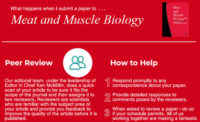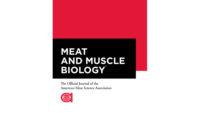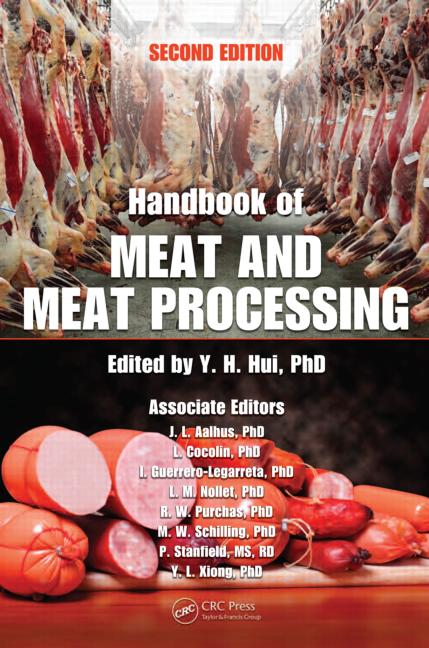Most technologies and innovations are initiated and substantiated by scientific research that is published in peer reviewed scientific journals. Meat and Muscle Biology was initiated by The American Meat Science Association as its official scientific journal in October of 2016 to provide a broader scope of peer-reviewed meat science and muscle biology research than was currently available to the world meat science and industry community. The journal’s focus is on edible products from commonly farmed and/or harvested meat animal species and further establishes AMSA as the authoritative resource of factual meat information. The papers provide research information with an immediate practical application or for knowledge in biological aspects of the discipline that will advance its usefulness in the long term.
The journal considers research submissions on all antemortem and postmortem factors that influence the properties of meat that are marketed for human consumption. This includes meat from domestic mammals, avians, aquaculture species, amphibians, wild capture mammals, and synthetic meat analogs. The scope of topics ranges from production, processing, composition, quality, safety, and value of edible products including muscle biology and biochemistry, human nutrition, food safety, sensory evaluation, consumer science, meat analytical procedures, and marketing of meat products.
Why should you read Meat and Muscle Biology articles? While written in a traditional scientific style, MMB papers explain the scientific jargon and analytical procedures that are used in each paper while providing a clear abstract of the information in the article and a conclusion on the usefulness or applicability of the research information. It is an online journal with completely open access to anyone who has internet capabilities at https://dl.sciencesocieties.org/publications/mmb.
A recently available MMB paper is the AMSA Meat Science Lexicon. It provides clear and concise explanations for the terms used to define meat and meat processing for industry personnel, consumers, legislators, and scientists. Other recent articles describe D-values for Salmonella, Listeria monocytogenes, and Escherichia coli in processed meats and improving color or dark cutting beef. The breadth of topics is exemplified by studies on consumer meat handling behaviors from the store to the home, color stability of various fallow deer muscles, fiber types of springbok muscle, aging on Texas-style barbecue beef briskets, control of mite infestations on dry cured hams, Venezuelan quality grades for grass-fed cattle carcasses, probiotic levels and heat exposure on broiler breast meat, bison steaks and patties in nitrite embedded vacuum packaging, sodium reduction in processed meat, oxygen scavengers for master packed ground beef, hot and cold deboning for New Zealand grass-fed beef, and salt level on commercial bacon processing and slicing yields. Review articles on topics like the factors influencing color of fresh ungulate meat are also published
Two or more peer meat scientists thoroughly review each submitted manuscript followed by appropriate author revisions and careful technical editing and formatting of revised papers before publishing into the easy-to-read MMB format. Ken McMillin at Louisiana State University is the current Editor-in-Chief, and Surendranath Suman at the University of Kentucky serves as the Associate Editor under the supervision of the AMSA Board of Directors and Thomas Powell, AMSA Executive Director. Experienced and highly recognized U.S. and international meat scientists form the Editorial Board of Heather Bruce, University of Alberta; Michael Dikeman, Kansas State University; Anna Dilger, University of Illinois; Elisabeth Huff-Lonergan, Iowa State University; Melvin Hunt, Kansas State University; Brad Kim, Purdue University; Jeffrey Savell, Texas A&M University; Wes Schilling, Mississippi State University; Phyllis Shand, University of Saskatchewan; Robyn Warner, The University of Melbourne; and Tommy Wheeler, USDA ARS.
More information about Meat and Muscle Biology is at http://www.meatscience.org/publications-resources/mmb, and questions can be sent to mmb@meatscience.org.






Report Abusive Comment